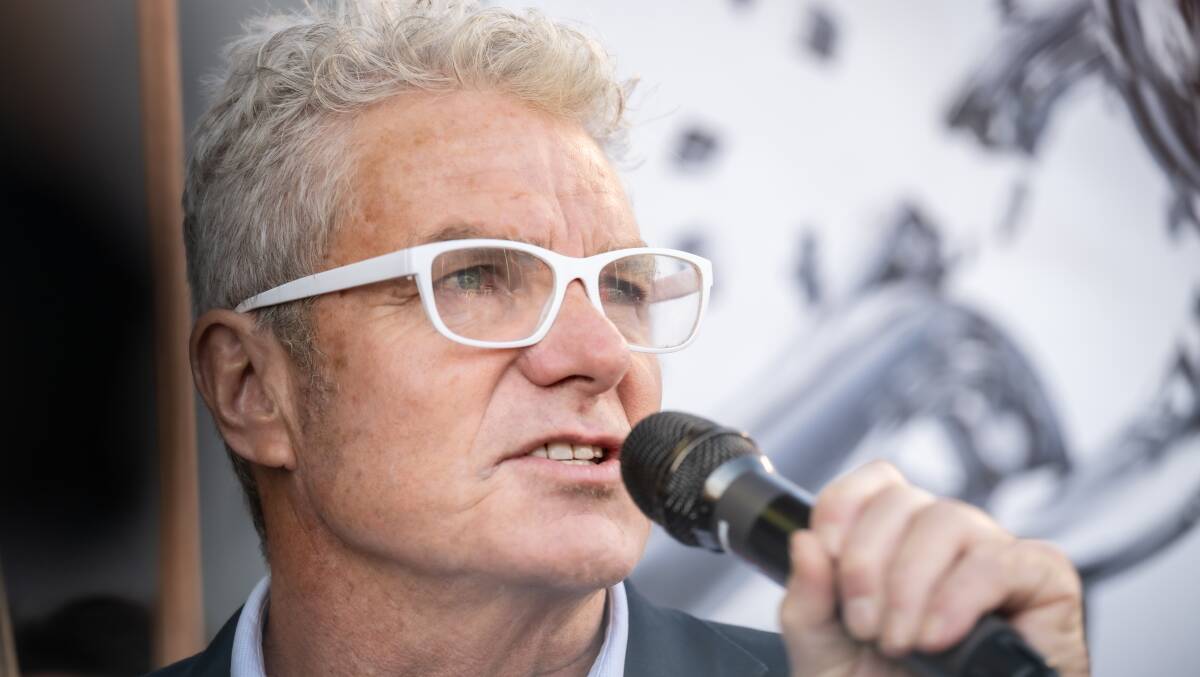Australia’s David McBride, the 60-year old ex-military lawyer turned Afghanistan War whistleblower, was sentenced to almost six years in prison by a federal judge in Canberra on Tuesday, Consortium News (CN) reports.
Although McBride argues he was fulfilling his obligation to his country, leaking documents to the media uncovering atrocities committed against civilians by Australian military personnel in Afghanistan, the judge made clear the harsh sentence is intended to deter any future whistleblowers or similar disclosures.
Mark Davis, an attorney for McBride as well as his solicitor, told CN this is “a pretty vicious judgment,” describing it as an “extremely heavy sentence” especially since Canberra has admitted McBride “caused no harm” and did not benefit personally as a result of the public disclosures.
“We are horrified, frankly. Whatever happened today we are appealing,” Davis vowed.
Supreme Court Justice David Massop gave his ruling Tuesday morning, claiming “only a prison sentence is appropriate.” McBride will be imprisoned for five years and eight months, with no chance of parole until he has served two years and three months. At the sentencing, after accusing McBride of believing he was wiser than the Australian Defense Forces (ADF), Mossop insisted to the court “It is imperative that others be generally deterred from holding such attitudes.”
McBride was charged with theft of government documents and providing them to journalists at the Australia Broadcasting Corporation (ABC). The documents exposed that unarmed Afghan civilians had been murdered by Australian troops. A government inquiry, which lasted four years, found 23 potential war crimes, including the slaughter of 39 Afghan civilians, farmers, and prisoners.
Davis has explained that the defense will not only appeal the severe sentence, but also the conditions of the trial which forced McBride’s team into a corner before they pled guilty.
The public interest defense, which McBride and his legal team had intended to rest their case on, was rejected by Mossop. McBride’s argument included that his oath to the British Crown required him, as a matter of duty, to inform the Australian public of its government’s crimes instead of obeying military orders blindly and safeguarding official secrets. As CN’s Joe Lauria notes, “His lawyers also invoked the Nuremberg principles in which it is a soldiers’ duty to break an oath to report serious crimes.”
Last November, Mossop ruled out this defense and declared “There is no aspect of duty that allows the accused to act in the public interest contrary to a lawful order.” An effort to appeal this decision was launched by McBride’s legal team, but Supreme Court Chief Justice Lucy McCallum denied their application.
As Lauria explains, “On the same day in November Mossop ordered that agents of the Attorney General’s office could remove classified documents from the defense’s possession, which McBride’s team had intended to present to the jury. Because of those regressive rulings, McBride accepted his attorneys’ advice that, left with no viable defense, he should plead guilty.”
Outside the courthouse after Tuesday’s sentencing, Davis explained “It’s an issue of international importance that a Western nation has such a narrow definition of duty. We say David McBride fulfilled his duty and he wished to put it to a jury that he conducted himself according to the oath he gave to his nation.”
McBride’s legal team pushed for leniency pointing to his post-traumatic stress disorder (PTSD) and his belief that he was doing the “honorable” thing by informing the public of the reality of its government’s military actions overseas. The prosecution instead accused McBride of being motivated by “personal vindication” and claimed he imperiled national security. Mossop denounced the defendant, proclaiming “He showed no remorse.”
The defense lawyers were steadfast in their arguments that there was no evidence that anybody was harmed as a result of the disclosures and that McBride ensured any risks were minimized by handing the documents to professional journalists.
According to the BBC, “the information [McBride] provided underpinned a series of reports in 2017 called The Afghan Files, which gave unprecedented insight into the operations of Australia’s elite special forces in Afghanistan, and contained allegations of war crimes.” The Afghan Files lay bare numerous instances of unarmed men and children slain by Australia’s Special Forces, “including a six-year-old boy who was allegedly shot in his sleep in 2013.”
McBride earned his law degree at Oxford University and rose to the rank of Captain in the British Army. He did two tours of Afghanistan, from 2011-2013, as a legal officer with the ADF where he came to realize “a line had been crossed” by the commanders. During the next few years, while working at an army base located nearby Canberra and coping with PTSD, McBride began copying the sensitive documents over a period of a year and a half.
McBride made repeated attempts to resolve the issue within the government before reaching out to the ABC. “He tried an internal complaint first. When that failed, he went to the police and the [defense] minister, before turning to the press. He believed the dossier he compiled would show the ADF’s chain of command was so concerned about the perception of unlawful killings that they were scapegoating soldiers and undermining special forces’ confidence to do their work,” the BBC reports.
“I never said I would cover up crimes for the government,” Mossop quoted McBride as saying. The judge said McBride accessed the material and stored it in a personal folder, adding “He then removed this information – some 237 docs, 209 of which were classified ‘Secret” – and took them home.” Australia’s Federal Police “seized the documents from his home, giving rise to the charge of theft,” Mossop continued.
Lauria reports, “The judge said McBride’s lawyers argued his motivation was neither financial gain, nor to aid Australia’s enemies. that he believed he was not committing an [offense]. Mossop said McBride admitted to taking the documents but in pursuit of a legal aim – within the Protective Disclosure Act, that McBride claimed he had a legal obligation to disclose.”
Mossop’s ruling has caused an uproar, with rights advocates condemning the lack of whistleblower protections in Australia and highlighting that McBride has been imprisoned despite the fact that those whose potential war crimes he exposed have not yet been convicted and sentenced.
Human Rights Watch’s Australia director Daniela Gavshon said “It is a stain on Australia’s reputation that some of its soldiers have been accused of war crimes in Afghanistan, and yet the first person convicted in relation to these crimes is a whistleblower not the abusers.”
She added, “McBride’s jail sentence reinforces that whistleblowers are not protected by Australian law. It will create a chilling effect on those taking risks to push for transparency and accountability – cornerstones of democracy.”

































